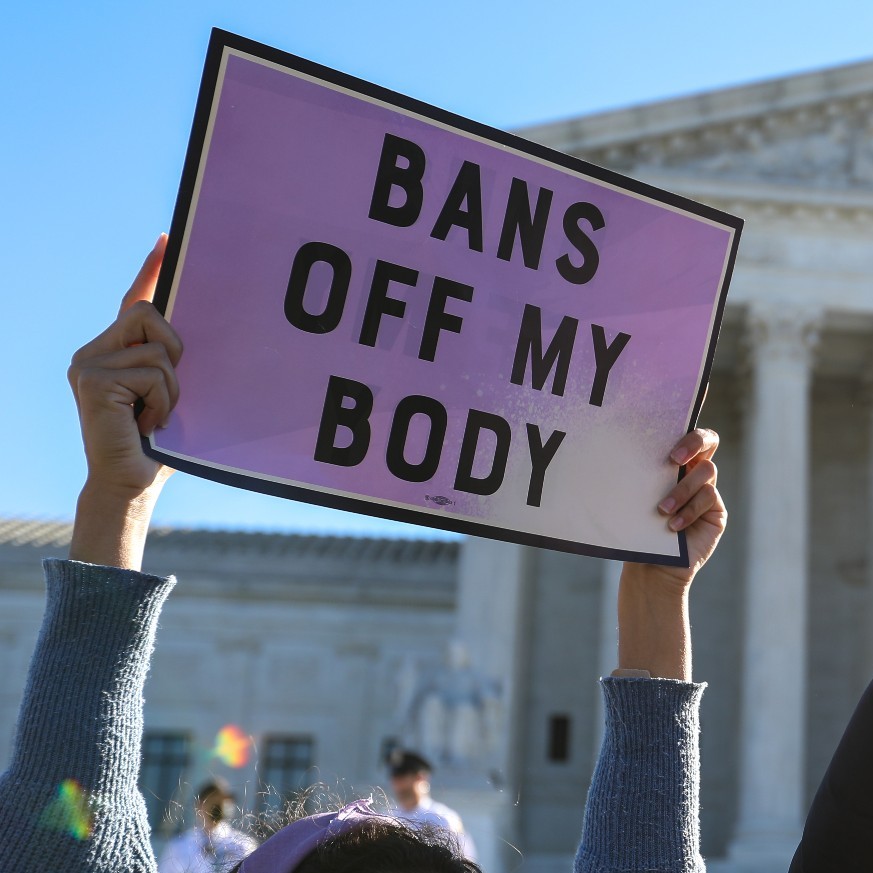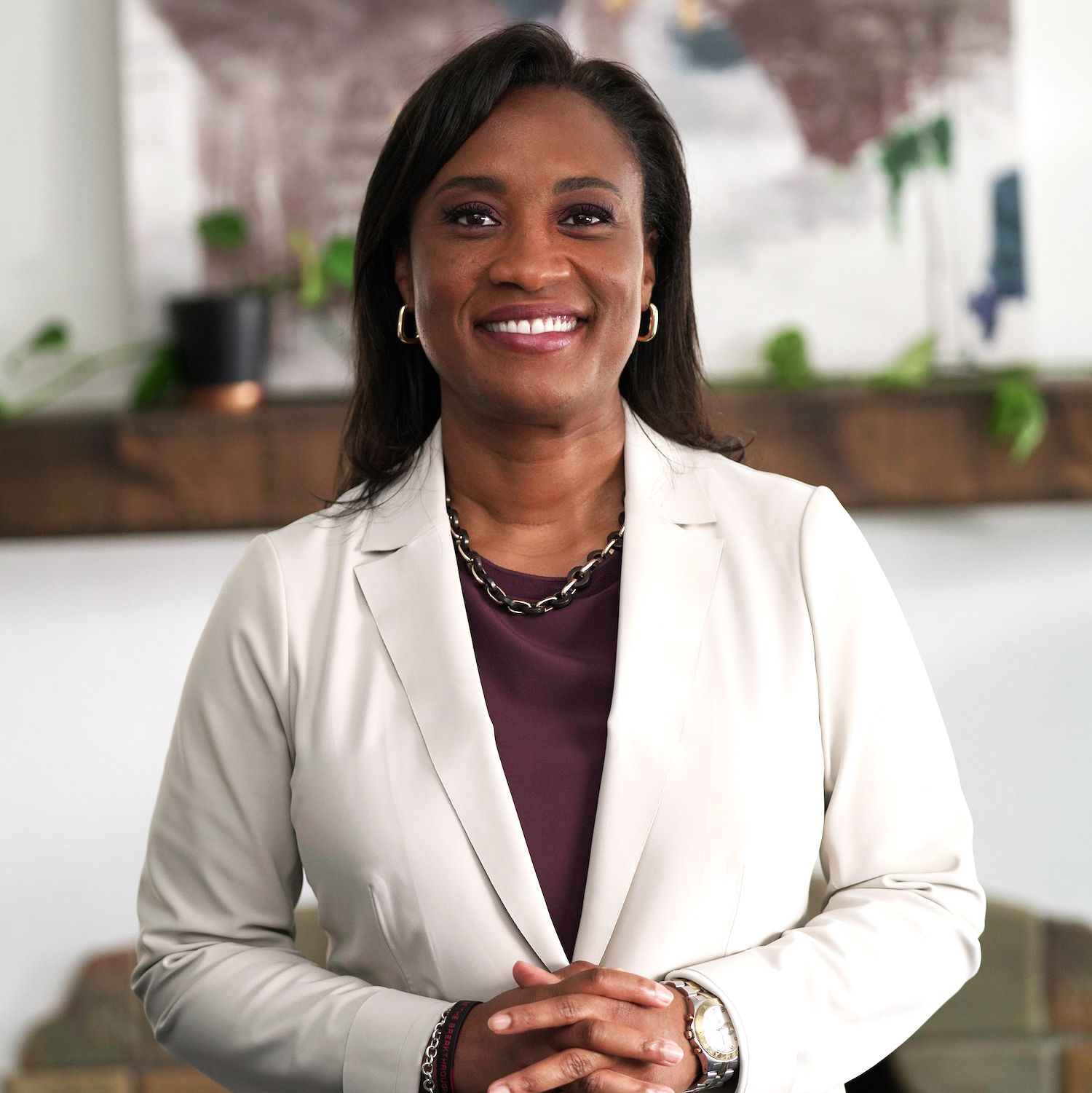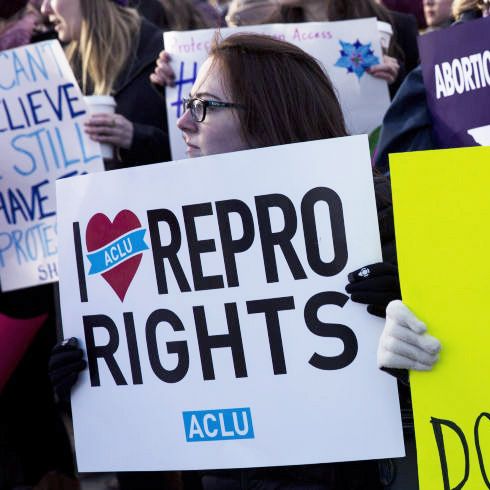How Does the Texas Abortion Debate Affect Women in Texas? We Asked an Expert
We spoke to Jessica Gonzalez-Rojas, the Executive Director at the National Latina Institute for Reproductive Health, to get an inside look at how the abortion bill will affect the women of Texas.

If you've followed our Bulletin in the last few months, you probably know that with the Texas Senate passing one of the most restrictive abortion bills in the country, many clinics will be forced to close. As women will be left with very limited access to safe abortions in their communities, many will take their health into their own hands. This domino effect of closings will especially hit the women in the Latino community of the rural Rio Grande Valley region in Texas. We spoke with Jessica González-Rojas, the Executive Director at the National Latina Institute for Reproductive Health, to get an inside look at how the abortion bill will affect the women of Texas as their access to abortion services is dramatically reduced.
What is the general sentiment among Texan women surrounding the current abortion debate?
"I think there is a sense of both deep disappointment and anger but there is also a galvanism that is happening. Politicians are interfering with people's abilities to make decisions and what they are pushing for is not something to protect women, but rather to create more barriers to healthcare. To see that play out in such a dramatic way through the filibuster, through the bill, and through the cuts to family planning programs, people are now really rising up and saying 'enough is a enough.' I think that out of something so horrific, it has also garnered the need to stand up and speak out."
How will this abortion bill target the Latina population?
"These decisions impact about 2.5 million Latina women — that is a huge population. What is important to note is that they work and live in very rural, marginalized communities in the Rio Grande Valley which border Mexico. Many of these women have been facing barriers to general healthcare all their lives because the community has been written off and they don't get the services they need. The closing of clinics and cutting communities off from already limited resources disproportionately impacts those Latinas. The National Latina Institute of Reproductive Health is committed to looking at issues intersectionally — we are looking both at the immigration debate juxtaposed against women's health and rights and how it [the bill] squarely hits Latinas in a way that they are disproportionately impacted. Many are fearful of leaving their homes because there are raid rumors, but then they have to travel miles and miles and sometimes overnight to get to a health clinic, or take some desperate measures to get care that they need. It is just really scary about what can potentially happen."
Can you provide any reason as to this abortion restriction trend we are seeing?
"There are a lot of efforts on the federal level to restrict abortion and many of them passed the House of Representatives because the leadership is very anti-choice. We are seeing these efforts to pass these copycat laws in Ohio, North Dakota, Arizona — there is are constant attacks from state governments — they are looking at everything from mandatory sonograms, mandatory waiting periods, to 20-week bans."
Stay In The Know
Get exclusive access to fashion and beauty trends, hot-off-the-press celebrity news, and more.
But if someone needs an abortion and they're not able to go to a local clinic, what will happen?"
"Some clinics will remain open because they will do the retrofitting to meet the requirements, but it will be more limited. We are hearing that the clinics closest to that area [Rio Grande Valley] will likely close. I think options will involve going across state borders, utilizing the 'star pill,' or trying to get their hands on some other method."
What are some suspected repercussions the abortion restriction bill may cause?
"What we are going to eventually see are a lot of unplanned pregnancies. The Health and Human Service Commission projects that unplanned pregnancies in Texas will add $273 million dollars in costs to taxpayers. What they are doing is not saving money, not helping women, and it is not helping communities, it is controlling women's decision making and it is causing taxpayers to spend more. Some of these women aren't going to be able to find another option and carry the pregnancy to term — they are then burdened with the challenges of raising a larger family. It is a misguided, bad decision fiscally and socially for all women in Texas."
-
 I Injected My Body's "Liquid Gold" to Address Undereye Fine Lines and Dark Circles
I Injected My Body's "Liquid Gold" to Address Undereye Fine Lines and Dark CirclesBut would I do it again?
By Michelle Rostamian
-
 Queen Elizabeth Gave the Perfect Response When Pope Francis Presented Her With Priceless Gifts for Prince George
Queen Elizabeth Gave the Perfect Response When Pope Francis Presented Her With Priceless Gifts for Prince GeorgeThe late pope spared no expense when it came to treating the infant prince in 2014.
By Kristin Contino
-
 Want Healthier-Looking Hair? This Unexpected Beauty Product Might Be the Answer
Want Healthier-Looking Hair? This Unexpected Beauty Product Might Be the AnswerSkip the shampoos, glosses, and treatments.
By Marie Claire Editors
-
 Cecile Richards, Former Planned Parenthood President and Women's Rights Activist, Has Died at Age 67
Cecile Richards, Former Planned Parenthood President and Women's Rights Activist, Has Died at Age 67"Our hearts are broken today but no words can do justice to the joy she brought to our lives."
By Amy Mackelden
-
 36 Ways Women Still Aren't Equal to Men
36 Ways Women Still Aren't Equal to MenFeatures It's just one of the many ways women still aren't equal to men.
By Brooke Knappenberger
-
 Roe Is Gone. We Have to Keep Fighting.
Roe Is Gone. We Have to Keep Fighting.How To Democracy always offers a path forward even when we feel thrust into the past.
By Beth Silvers and Sarah Stewart Holland, hosts of Pantsuit Politics Podcast
-
 The Supreme Court Is Hearing Arguments in a Case That Could Overturn 'Roe v. Wade'
The Supreme Court Is Hearing Arguments in a Case That Could Overturn 'Roe v. Wade''Dobbs v. Jackson Women's Health Organization' is the most consequential abortion rights case in decades.
By Rachel Epstein
-
 EMILY's List President Laphonza Butler Has Big Plans for the Organization
EMILY's List President Laphonza Butler Has Big Plans for the OrganizationUnder Butler's leadership, the largest resource for women in politics aims to expand Black political power and become more accessible for candidates across the nation.
By Rachel Epstein
-
 Want to Fight for Abortion Rights in Texas? Raise Your Voice to State Legislators
Want to Fight for Abortion Rights in Texas? Raise Your Voice to State LegislatorsEmily Cain, executive director of EMILY's List and and former Minority Leader in Maine, says that to stop the assault on reproductive rights, we need to start demanding more from our state legislatures.
By Emily Cain
-
 Your Abortion Questions, Answered
Your Abortion Questions, AnsweredHere, MC debunks common abortion myths you may be increasingly hearing since Texas' near-total abortion ban went into effect.
By Rachel Epstein
-
 Trump Vows to Appoint Pro-Life Judge to Supreme Court
Trump Vows to Appoint Pro-Life Judge to Supreme CourtIn a new interview with 60 Minutes, the President Elect confirms his stance on Roe v. Wade.
By Sally Holmes